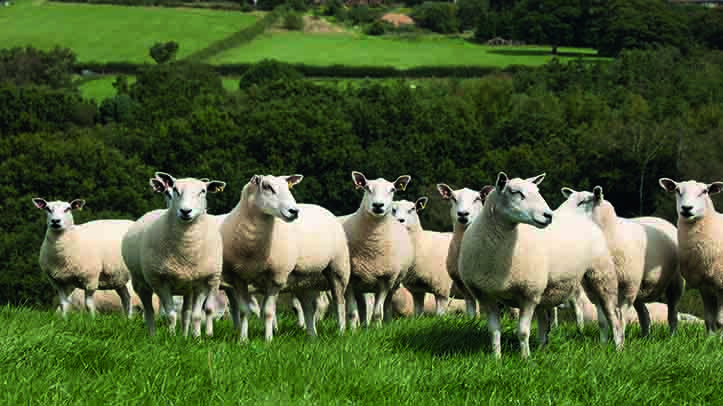The National Sheep Association (NSA) said it is excited to begin work alongside industry partners to help deliver a new project designed to breed low methane producing sheep, in turn helping sheep farmers make a positive contribution to UK agriculture’s journey towards net zero.
The project launched this week, following an award of £2.9 million from Defra’s Farming Innovation Programme.
Called ‘Breed for CH4nge – Breeding Low Methane Sheep’ and led by sheep genetics company Innovis, the three-year initiative will measure methane emissions from a total of 13,500 sheep in 45 flocks, collect the necessary data and build and develop the tools required to genetically reduce methane emissions and improve the efficiency of the national flock.
The project will eventually demonstrate the impact of low-carbon sheep on whole farm carbon footprints.
The project will bring together progressive performance-recording sheep breeder groups including Sheep Improvement Group (SIG), breeding the Exlana, Performance Recorded Lleyn Breeders (PRLB) and the Centurion Group of Dorset Sheep Breeders as well as Innovis to deliver the research and host on farm events.
Scientific input, technology and additional genetics expertise will be provided by SRUC and Harper Adams University, while Signet Breeding Services, part of AHDB, will provide performance recording services.
NSA chief executive Phil Stocker said: “NSA is delighted to be a partner in Breed for CH4nge and I see this as a highly significant research and development project to move the UK’s sheep industry forward in terms of productivity gains, alongside reducing methane emissions and improving carbon footprints.
“These outcomes are directly aligned to overcome some of the challenges placed at the door of UK agriculture in this post-CAP era. We have to move faster in terms of farming being a solution to climate change, and play our part in the UK’s 30% methane reduction by 2030 targets agreed during COP 26.”


